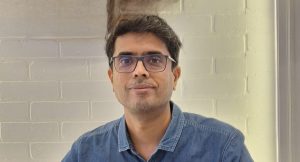Some months ago, we embarked on an unconventional journey to discover talent for one of our customers. One that involved the wisdom of ancient Indian fables. Could these tales offer insights into modern recruitment? The challenge lay in not just finding the right talent, but ensuring this talent is aligned with the ethical standards and values of the organisation.
The Panchatantra, a collection of timeless animal stories from India, has always fascinated me.
The Monkey and the Crocodile
In this story, a monkey befriends a crocodile and shares fruit with him. However, under his wife’s influence, the crocodile plans to kill the monkey for his heart. The monkey, realizing the crocodile’s intentions, uses his wit to escape.
I imagined a scenario where a candidate’s loyalty and trustworthiness were put to the test. It was vital to understand how they would react in a situation that demanded quick thinking and integrity. Could they be like the monkey, using their wits to navigate challenges without compromising their morals?
The Man and the Mongoose
A Man leaves his child in the care of a mongoose. Upon returning, he sees the mongoose with blood on its mouth and, assuming the worst, kills it, only to find out later that the mongoose had actually saved the child from a snake.
This story underscored the dangers of jumping to conclusions and making hasty decisions. It reminded me of the importance of gathering complete information before making judgments. I envisioned a candidate who, like the Man, faced a situation that required patience and discernment. How would they handle incomplete information? Would they act rashly, or take the time to understand the full picture?
The Tortoise and the Geese
My favourite fable, The Tortoise and the Geese, also came to mind. A tortoise, desiring to fly, convinces two geese to carry him with a stick. Despite their warning not to speak, the tortoise opens his mouth to boast and falls to his death.
This fable warned against overambition and failing to heed wise counsel. It highlighted the need for candidates to balance ambition with humility in a modern context. I pictured a scenario where a candidate was advised senior colleagues. Would they listen and learn, or let their ambition blind them to valuable guidance?
The Brain Science of Stories
As my work involves working on the latest from brain science, I recalled the research by Dr. Paul Zak’s uncovering how stories shape our brains, tie strangers together, and move us to be more empathic and generous. His lab pioneered the behavioural study of oxytocin and has proven that when the brain synthesizes oxytocin, people are more trustworthy, generous, charitable, and compassionate.
What we have found is that stories, it turns out, engage multiple areas of the brain, including those involved in emotion and empathy. This engagement leads to a better understanding and retention of ethical principles. We like those story characters; it makes people look inside themselves and make changes to become better people.
Using stories like those from the Panchatantra in recruitment allowed us to tap into this neurological effect. It was more than just assessing skills; it was about connecting on a deeper level, eliciting genuine and thoughtful responses that revealed a candidate’s true character.
The Scenario Unfolds
Back in the room, we decided to weave these fables into our models, presenting ethical dilemmas inspired by these stories. For instance, one scenario mirrored The Monkey and the Crocodile: “Imagine you discover a colleague intends to undermine a project for personal gain. How do you handle this?”
The responses were illuminating. Some candidates displayed the monkey’s quick wit and loyalty, while others showed a tendency to jump to conclusions like the Man. A few, mirrored the tortoise, blinded by ambition and ignoring wise counsel. Though every view is right, you need to pick what view will work for you.
The Revelation
A blend of ancient wisdom and modern brain science creates a transformative approach to recruitment.
As the last candidate left the room, I felt a sense of fulfilment. We had not just conducted interviews; we had embarked on a journey through the timeless wisdom of the Panchatantra, discovering not just the best talent, but the right talent.
This is a special guest blog as we invite experts and professionals from the field of HR and recruitment to share their insights and perspectives.
Srinivas is the Founder and Chief Scientist of Peopleverse.
A new path-breaking Brain science-powered venture revolutionizing the potential of people and businesses. He has led and established large teams, employee strategies, and greenfield businesses in large global corporations across global geographies. he has done deep work with Boards in the Asia Pacific, European regional and Country leadership teams and Labour Unions. He has headed various committees on People, Innovation and Organization performance Transformation.
Peopleverse has celebrated its second anniversary, marking a successful journey in addressing employee life journey challenges at the workplace through the application of brain science research and behavioural analytics. From large conglomerates to nimble start-ups, our innovative solutions have been instrumental in enhancing workforce engagement and performance.
Visit www.peopleverse.in to learn more.







